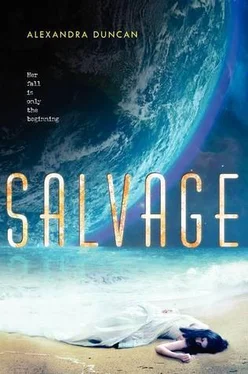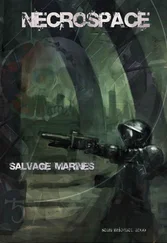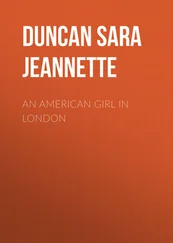“Of course I want tea. Why do you think you’re here?” She narrows her perfectly painted eyes.
“Right so, missus.” I fill a cup from the urn and hold it out to her.
She stares at me as if I’m offering a handful of goat-fouled hay. “Aren’t you forgetting something?”
I cut my eyes sideways to the cart.
“The towel.” She huffs. “Don’t they teach you people basic etiquette?”
“Oh.” I put the cup down on her desk and slide open the lid of my cart’s warming compartment to fish out a moist, neatly folded linen square. “Right so.”
She wipes her long fingers delicately and tosses the towel back at me. I catch it against my chest.
“Will there be anything else, missus?”
“Now I’ll have my tea,” she says.
“Right so—I mean, of course, missus.” I gesture to the cup I’ve already poured for her, waiting on her desk.
“No.” Her voice is sharp. “That one’s gone cold. I’ll take a new cup.”
I pick up the cup I’ve just poured. There’s no place to stow it except on the top of the cart, so I cram it beside the clean glasses, slopping sticky milk tea down in the process. My stomach knots up and my hands shake with the strange mix of fear and anger. I pour a fresh cup and try again. “Will there be anything else, missus?”
“No.” She flicks her hand at me, and for a moment I see Modrie Reller. All she needs is a fan. “That’s all for now.”
I push the cart around the room, stopping at each post. Not all of them are so awful, but they all want something.
“Take these cups downstairs, would you?”
“Could you see about getting me a mango lassi from that tapri around the corner?”
“You’re going by accounting on your way down, right? Would you drop this scanner back with Dipak and tell him thanks for me?”
“Do you have any caffeine pills on you?’
“And what about some pakoras if you can round them up?”
I try to scratch out everyone’s orders as best I can on the data pad, but by the time I round the last desk, my cart is littered with dirty cups, wrappers, a used finger bandage, and the uneaten edges of some fried, crusty bread, all swimming in a shallow layer of tepid tea.
“You know, you shouldn’t have started with Nandita,” the last man I serve says as I fill his cup. “She’s only been here seven months. You should start with the senior employees first.”
“I’ll try to remember, so,” I say politely, though by this time I feel close to screaming.
I truck the cart back to the lift and ride down to the kitchens, where Ajit is waiting for me.
“There you are.” He’s in the middle of inspecting two newly returned carts. “Try to pick it up a little next time. Your rating’s not too bad for the first day, but still. Try to pick it up.”
Then he sees my cart. “What’s this?”
“I . . .”
He snatches up a dirty glass, dripping with tea. “Why didn’t you stow this in the used glassware bin?” He picks up the crusty bread between two fingers. “And why didn’t you use the compost container?”
“I . . . I didn’t . . .” I feel myself shrinking again, all the strength the Gyre gave me gone. I’m back with my crewe, bowing my head and scraping and terrified. I can’t bring myself to look Ajit in the face. “I didn’t know they were there.”
Ajit laughs. “You’re kidding, right?” He presses a seam in the cart’s side. It swings open to reveal a sliding compartment perfect for dirty glasses. He pushes a button on the cart’s handle, and a compost chute slides out from the back of the cart. “Now you know.”
I wish the floor were water so I could sink down into it.
He turns to my data pad. “At least you took some orders while you were up there.” He squints at the pad, and then holds it out for me. “What does that say? M-A-G-O-L-A-S-I. Magolasi?”
“Mango lassi?”
“Not exactly the top of your class, were you?”
I stalk away. My eyes blur as I burst through the kitchen doors, into the hallway where I’ve stowed my things among the other chai wallahs’ crows and lunch bins. I sit down on the narrow metal bench bolted to the wall and drop my face into my hands.
A few moments pass, and then the door squeaks. Someone crosses the floor and sits next to me. “You okay, love?”
I look up. Doya smiles back at me.
“I mucked it all up,” I say.
“Don’t worry.” Doya pats my back. “It’s only your first day. No one’s first day is perfect.”
“I served everything all out of order, and one of the upstairs women yelled at me, and I used the cart wrong, and Ajit couldn’t even read my writing.” My voice breaks. For some reason that hurts worst, that my hard-won writing isn’t good enough.
“I’ll tell you something.” Doya leans back against the wall. “You know why they have us?”
“No,” I say into my hands.
“All those people upstairs, the ones you fetch things for, they aren’t allowed to leave their desks for more than a few minutes. They’ve got efficiency ratings to keep up with, too. Their bosses have us around so they can’t leave off working and run down the street for a nice beer or some tea. You understand?”
I nod.
“So every time one of them screams at me, I think, You’re stuck here with yourself all day, but in a minute or so, I can walk on.”
I nod again. “Right so.”
We sit in silence for a moment.
“Where are you from?” Doya asks.
I hesitate. “Come how?”
“That funny way of talking you have,” Doya says. “I know I’ve heard it someplace before, but I can’t place it.”
“I was born on a crewe ship.” The words are out before I can think on them too much.
“Ah.” Doya’s eyes light up. “The ones that run supplies out to the colonies and outposts?”
“So,” I agree.
“I knew it.” She frowns. “But you don’t look like most of the crewe folk I’ve seen. And I’ve only ever seen the boys.”
“The boys?” I repeat.
She nods. “My daughter, she’s an instructor at a state boarding school. They’ve got a whole wing of boys from crewe ships who’ve been dumped off on Bhutto station or left behind down here. Strange things. Pale.” She looks me over. “You sure you’re one of them?”
“Right so,” I say. “But . . . they got left behind?”
“Mmm hmm. My daughter says their old men marry up all the girls, and there isn’t anyone left for the boys, especially the ones from less powerful families. So they dump them off here. Awful.” She looks at me. “No offense.”
I shake my head. Some boys I knew died on their first journeys groundways, but Earth and its outposts could be dangerous places, like Modrie Reller and my father always said. And once Soli told me about a boy who had been banished from the Æther after some bad matter came over him and made him stab his friend. But nothing like that ever happened on the Parastrata. Surely that was never something we did. Was it?
A sick feeling creeps over me. “Do any of them . . .” I swallow. “None of them have red hair, do they?”
“Oh, sure.” Doya shrugs. “All colors. Red, brown, white, yellow, black.”
My head reels. I lean back against the wall. For a heartbeat, I’m back aboard the Parastrata, ten turns old and watching Llell’s mother sink to her knees before Modrie Reller. My Niecein. Couldn’t they bring back his body? That night I had laid awake, thinking of Niecein’s soul gone to dust and thanking the Mercies the men were the ones to brave the Earth instead of me. But now . . . Have all those dead boys been here the whole time?
Читать дальше












